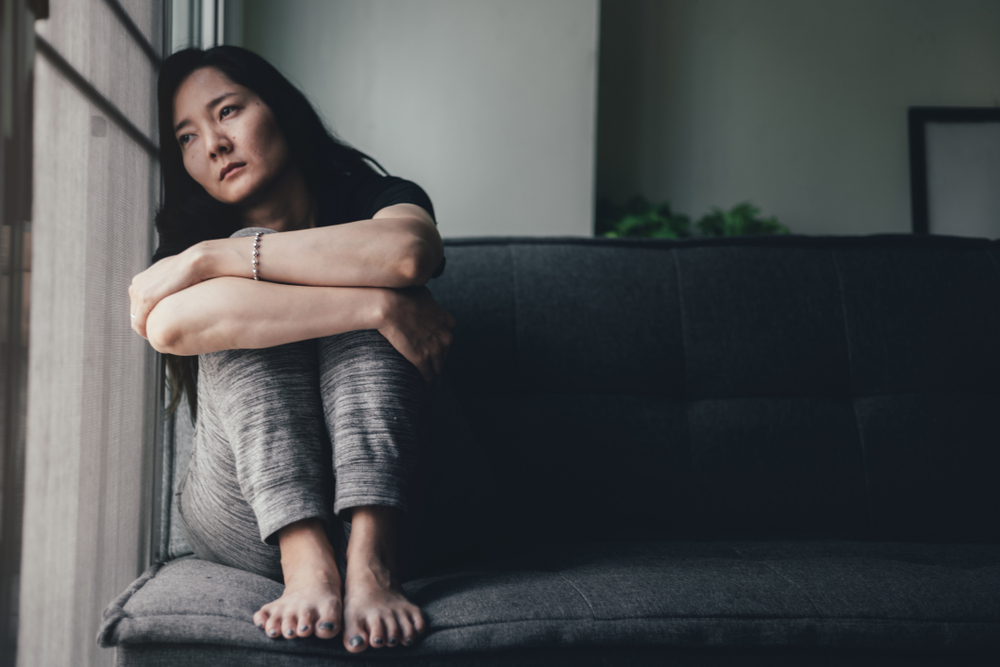Sleepy's use independent contractors for delivery services to our customers and during this time we want to support these small business owners and our customers to ensure safety for all. This may mean some interruptions to our normal delivery service and Free Old Mattress Removal which will be based on advice obtained from the Australian Government and the precautionary measures our delivery contractors determine necessary. If you are purchasing in one of our Sleepy’s showrooms or online, our staff will confirm the current status and keep you updated until your order has been delivered. If you are unable to accept the delivery due to illness or quarantine, you can arrange an alternative delivery time with the store. We are committed to continuing Sleepy’s amazing customer experience from the start of your mattress selection through to post purchase, delivery and beyond.
Read More
Why Can’t I Sleep? Reasons Why You Can’t Sleep At Night
Read More
Why Can’t I Sleep? Reasons Why You Can’t Sleep At Night
January 22nd, 2021
Estimated reading time: 5 minutes, 2 seconds. Contains 1007 words
Do you find yourself tossing and turning throughout the night, having trouble falling asleep, or finding it impossible to sleep the way through to the next morning? You’ve likely started to wrack your brain asking, “why can’t I sleep?” – and the answer may not be as straightforward as you think.
There are many reasons for not sleeping at night, and you may be experiencing just one reason, or a multitude. Rather than tossing back a sleeping pill and calling it a day (or a night), let’s look at the likely reasons why you can’t stay asleep at night, from stress to diet and more.
Stress
Stress can impact your life in many negative ways, including interrupting your sleep patterns. If you suffer from chronic stress, you may sleep less, have poor sleep quality, and struggle to maintain focus or energy throughout the day. Stress is easily one of the top reasons for not sleeping at night.
Stress leading to a lack of sleep is due to the way your brain functions. The chemicals in your brain connected with deep sleep are the very same ones that tell your body to cease the production of stress hormones – so, when you don’t sleep well, your body continues to produce stress hormones. This means that you will wake tired the next day, feel more stressed, and have difficulty falling asleep the following night, leading to a sleepless cycle.
The solution
We certainly aren’t going to tell you to “stop stressing out”, but we do encourage you to take proactive steps toward managing your stress. In the meantime, learning how to fall asleep and stay asleep is important. Things such as meditation, earlier meal times, and screen time reduction can all help to provide a better night’s sleep.
Mood Disorders
According to the Black Dog Institute, one in five (20%) of all Australians aged between 16 and 85 will experience a form of mental illness in any year. The most common of these are depression and, both of which are very valid reasons for not sleeping at night, especially if you experience these for a period longer than two weeks.
When it comes to depression, it is in a bidirectional relationship with sleep, meaning that poor sleep can contribute to the development of depression, and having depression can cause a person to develop sleep issues. In the case of anxiety, excess fear and worry can make it both difficult to fall asleep and stay asleep. If you’re asking yourself “why can’t I sleep?”, you may be harbouring hidden anxieties. Similar to the way depression and sleep are linked, anxiety can be made worse by a lack of sleep, which can lead to insomnia and other anxiety disorders.
The solution
If depression or anxiety are interrupting your sleep and everyday life, we recommend consulting with your GP to discuss your options for treatment, such as medication or therapy. In the meantime, focus on good sleep hygiene by establishing regular sleep patterns, avoiding caffeine before sleep, and try to relax and unwind before going to bed.
Health Condition
Many health conditions can contribute to poor sleep, including sleep apnoea (pauses of breathing during sleep), chronic pain, restless leg syndrome (RLS; an overwhelming need to move the legs), pregnancy and many more. Even more common are parasomnias, which cause abnormal movements and behaviours during sleep. These can include sleepwalking, nightmares, sleep talking, teeth grinding and jaw clenching.
If you know that you suffer from one of these health conditions, this may be the reason why you can’t sleep at night.
The solution
A number of physical exams are available to determine whether you suffer from a condition such as sleep apnoea, while other common treatment include melatonin supplements, allergy medication, breathing devices, mouthguards and surgery. You can also make lifestyle changes including diet, stress reduction, and limiting daily caffeine intake.
Poor Sleep Habits
Do you go to bed at a different time every night? Or perhaps you lie awake for an extra hour after lights out, browsing the internet or social media on your phone? These things can contribute to poor sleep habits and are the reasons why you can’t sleep at night! In fact, screen time is a notorious contributor to a bad night’s sleep, as the blue light emitted by screens on your mobile phone (as well as computers and televisions) reduces the production of melatonin, the hormone that controls your sleep and wake cycle.
The solution
We have plenty of tips for establishing good sleep habits, including using your bed for sleep (no checking the news on your phone!), sleeping when tired, and going to bed and waking up the same time every day.
Partner Disturbance
If you have a partner who tosses about a lot in their sleep, steals the blanket, snores or talks in their sleep, you’re obviously not going to sleep very well at night. And, chances are, they won’t necessarily wake up feeling fresh as a daisy, either.
The solution
Partner disturbances can be remedied in a number of ways, including asking snorers to sleep on their side and choosing the right mattress to support both of you and lessen the chance of one person waking up every time the other rolls over.
Diet
Are you a fan of spicy food and caffeine? If you’re looking for an answer to “why can’t I sleep?”, your diet may be the culprit. Caffeine will of course keep your brain wired if you drink it too close to bedtime, and foods that are high in fat take longer for your body to process and break down, giving it less of a chance to focus on preparing you for sleep.
The solution
Simple changes to your diet, including more vegetables and fish and less sugar, can go a long way to helping you sleep. Alternatively, you can look into foods that promote sleep, including milk, sweet potato and valerian tea.
By figuring out the cause of your restlessness, you should soon find yourself returning to the land of nod and enjoying a peaceful night’s sleep once more. If you need to create a solid foundation for sleep, ask us which mattress is best suited to your sleep routine.



